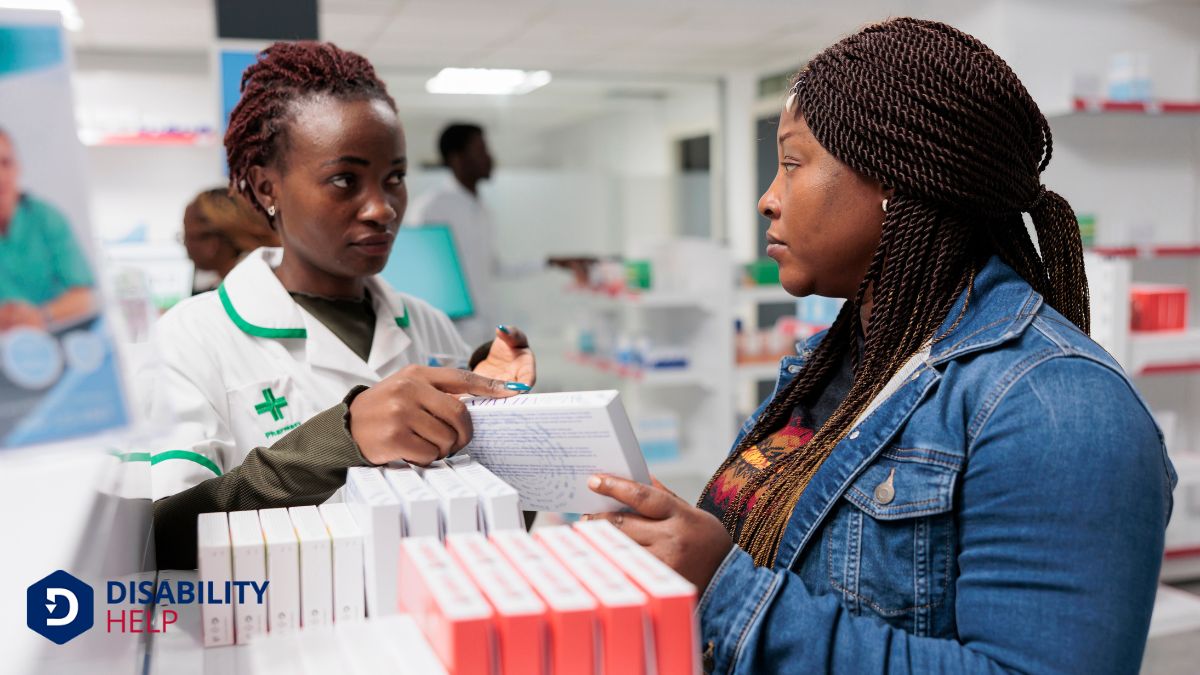Let's explore whether non-emergency transportation services can be effectively leveraged for pharmacy visits. These services already play an essential role in our healthcare system, but can they enhance access to medications? Understanding their potential impact on our health and community well-being is important. Are there challenges we need to address, or are the benefits too significant to overlook? Let's investigate this topic and uncover the possibilities.
Key Takeaways
- Non-emergency transportation reliably provides rides for individuals needing to access pharmacies for medication pick-ups.
- It ensures timely access to medications, which is crucial for maintaining prescribed health regimens and preventing complications.
- These services offer crucial support for individuals facing mobility challenges or lacking personal transportation.
- Non-emergency transportation reduces stress and barriers to accessing healthcare resources, improving overall health outcomes.
- Facilitating pharmacy visits promotes better adherence to medication schedules and enhances patient independence.
Understanding Non-Emergency Transportation Services

When it comes to non-emergency transportation services, we often overlook their essential role in guaranteeing access to important healthcare needs, like pharmacy visits. These services provide a significant link for those who might struggle with mobility or lack access to personal transportation. By offering reliable rides, they help us maintain our medication schedules and health appointments. We can think of them as a bridge to better health outcomes.
We need to understand that non-emergency transportation is more than just a ride; it's a support system. It caters to individuals who require assistance but don't need urgent medical attention.
This service guarantees that everyone, regardless of their situation, can access healthcare resources, including picking up prescriptions, without unnecessary stress or barriers.
The Importance of Access to Medications
We all know how essential access to medications is, yet many face barriers that make it challenging.
When transportation issues prevent us from reaching pharmacies, our health outcomes can suffer.
Let's explore how reliable transportation options can guarantee everyone gets the medications they need.
Medication Access Challenges
Access to medications is essential for maintaining health, yet many individuals face significant barriers when trying to obtain their prescriptions. These challenges can stem from various factors, including financial constraints, limited pharmacy hours, or transportation issues.
We recognize how frustrating it can be when accessing necessary medications becomes an obstacle in itself. For those living in rural areas or without reliable transportation, reaching a pharmacy can be particularly difficult.
Let's also consider the struggles of people with mobility issues or chronic conditions; even a short trip can become an intimidating task.
Additionally, high medication costs can deter individuals from purchasing what they need. We must explore solutions to these barriers, ensuring everyone can access their prescriptions without unnecessary hardship.
Health Outcomes Dependability
Medication access challenges highlight the significant impact of reliable access to prescriptions on health outcomes. When we can't get our medications on time, our health can suffer.
Having dependable transportation to pharmacies guarantees we stick to our treatment plans, which is critical for managing chronic conditions. It's not just about convenience; it's about staying healthy and possibly avoiding hospital visits.
Let's consider the consequences: missing doses could lead to complications or worsening conditions. Reliable access to medications isn't just a logistic issue; it's a health priority.
Current Use Cases for Non-Emergency Transportation
Let's explore how non-emergency transportation is currently being used to improve healthcare access.
We see this service facilitating trips to medical appointments and routine health check-ups, which is essential for maintaining our health.
Additionally, it's an important resource for elderly patients, ensuring they can access necessary care without barriers.
Medical Appointments Transportation
While many of us might associate transportation services primarily with emergencies, non-emergency transportation plays an essential role in ensuring access to medical appointments.
It's vital for those of us who face mobility challenges or lack reliable transportation options. Imagine missing an important specialist appointment simply because we couldn't get there. That's where non-emergency medical transportation (NEMT) steps in, bridging the gap for patients needing regular care.
This service helps maintain our health by providing rides to doctor's offices, therapy sessions, and diagnostic tests. By ensuring that everyone, regardless of their transportation situation, can attend these critical appointments, NEMT reduces the risk of complications arising from missed visits.
Ultimately, it supports our overall well-being and health care continuity.
Routine Health Check-Ups
Non-emergency medical transportation (NEMT) extends beyond just ensuring access to specialist appointments; it also facilitates our ability to maintain routine health check-ups.
These regular visits are vital in identifying potential health issues early, yet many of us face barriers in getting there. NEMT steps in, helping us stay proactive about our health.
Here's why routine check-ups matter:
- Peace of Mind: Regular check-ups give us the reassurance that we're on the right track health-wise.
- Preventive Care: Early detection of health issues can prevent them from becoming severe.
- Chronic Condition Management: Routine visits help manage ongoing health issues effectively.
- Informed Health Decisions: With regular check-ups, we make informed choices about our health.
These visits are essential, and NEMT makes them accessible.
Accessibility for Elderly Patients
As we explore the role of non-emergency medical transportation (NEMT) in our healthcare system, it becomes clear that it's a lifeline for elderly patients.
Many older adults face mobility challenges that make accessing essential services, like pharmacy visits, difficult. Without reliable transportation, they might skip vital medication pickups, leading to health complications.
Policies and Regulations Governing Transportation Services
Maneuvering the policies and regulations governing transportation services can seem intimidating, but it's vital for guaranteeing compliance and delivering efficient service.
We need to familiarize ourselves with these rules to create a seamless experience. Here are some key considerations:
- Licensing Requirements: Obtaining the proper licenses guarantees our drivers are legally allowed to transport passengers. This step is essential for safety and legality.
- Insurance Coverage: Adequate insurance protects both passengers and service providers. Securing extensive coverage is a non-negotiable part of our operations.
- ADA Compliance: Making certain our services are accessible to all individuals, including those with disabilities, aligns with the Americans with Disabilities Act and promotes inclusivity.
- Local Regulations: Each area may have specific rules. Understanding local policies helps us avoid fines and maintain service quality.
Benefits of Utilizing Transportation for Pharmacy Visits
While maneuvering through the policies and regulations is fundamental for compliance, understanding the benefits of transportation services for pharmacy visits is equally important. Access to reliable transportation guarantees timely medication pick-ups, which is vital for maintaining health.
With these services, we reduce stress and save time, especially for those who might face mobility challenges or scheduling conflicts.
Additionally, transportation services can improve adherence to medication regimens by removing barriers to access. When we don't have to worry about how we'll get to the pharmacy, we can focus more on managing our health.
This convenience also enhances our peace of mind, knowing that help is available when needed. Ultimately, using transportation services can lead to better health outcomes and greater independence for all of us.
Challenges and Limitations of Accessing Transportation
Maneuvering the world of non-emergency transportation for pharmacy visits isn't without its challenges and limitations.
We often encounter barriers that can make accessing these crucial services difficult.
Let's consider some common issues:
- Availability: Sometimes, transportation options aren't readily available when we need them, leading to missed medication pickups.
- Scheduling Conflicts: Coordinating transportation schedules with pharmacy hours can be tricky, causing delays in receiving essential medications.
- Cost Concerns: While some services are covered by insurance, others may require out-of-pocket expenses, adding financial strain.
- Location Limitations: Not all areas have easy access to transportation services, leaving some of us in rural or remote locations without viable options.
Understanding these obstacles helps us advocate for improved systems and better support for our communities.
Case Studies and Real-Life Examples
Real-life examples can illuminate the complexities of non-emergency transportation for pharmacy visits, offering insights into both challenges and solutions.
Consider a senior community in Florida where residents rely on a transportation service to pick up prescriptions. Initially, they faced scheduling delays and limited availability. However, by collaborating with local agencies, they optimized routes and timing.
In another instance, a rural health clinic partnered with a transportation company to guarantee patients without vehicles could access necessary medications. They faced issues with long wait times but introduced a dedicated hotline for feedback, which helped improve service efficiency.
These examples show that while non-emergency transportation can be challenging, proactive planning and community collaboration can enhance access to essential pharmacy services.
How to Arrange Transportation for Pharmacy Trips
To effectively arrange transportation for pharmacy trips, we need to contemplate the lessons learned from communities that have successfully navigated this challenge.
Understanding their strategies can guide us in making informed decisions about our own needs. Our goal is to guarantee that everyone has convenient access to their medications without added stress.
Here's how we can start:
- Community Collaboration: Partner with local organizations and transportation services to pool resources and increase availability.
- Flexible Scheduling: Offer transportation at various times to accommodate different schedules, ensuring no one is left behind.
- Cost Management: Explore subsidies or grants to make rides affordable for all.
- Feedback Systems: Encourage riders to share their experiences to improve service quality continually.
Let's commit to creating a system that cares for everyone.
Future Prospects and Innovations in Transportation Services

As we look to the future of transportation services, innovative technologies and creative solutions promise to revolutionize how we access pharmacy visits.
Autonomous vehicles could soon become integral, offering safe and efficient rides without the need for a driver. We're also seeing the potential of ride-sharing apps tailored specifically for pharmacy trips, making scheduling seamless and convenient.
Imagine an app notifying us when our prescription's ready, then automatically scheduling a ride. Such advancements would guarantee timely access to medications, especially for those with mobility challenges.
In addition, eco-friendly options like electric vehicles and bike-sharing systems could reduce environmental impact, aligning transportation with sustainability goals.
Conclusion
To sum up, we believe non-emergency transportation services are crucial for ensuring everyone can access their medications easily. By providing timely rides to pharmacies, these services help maintain medication schedules, boost treatment adherence, and enhance overall health outcomes. While there are challenges to overcome, the benefits to individual independence and community health are undeniable. Let's continue exploring innovative ways to improve and expand these services, ensuring no one faces barriers to accessing essential medications.






